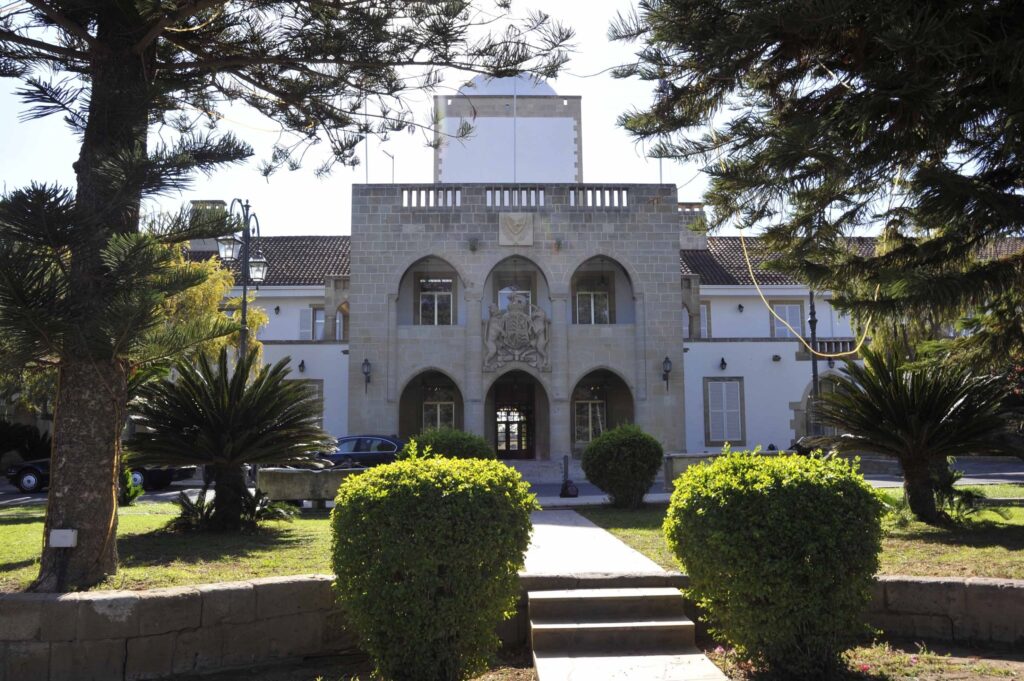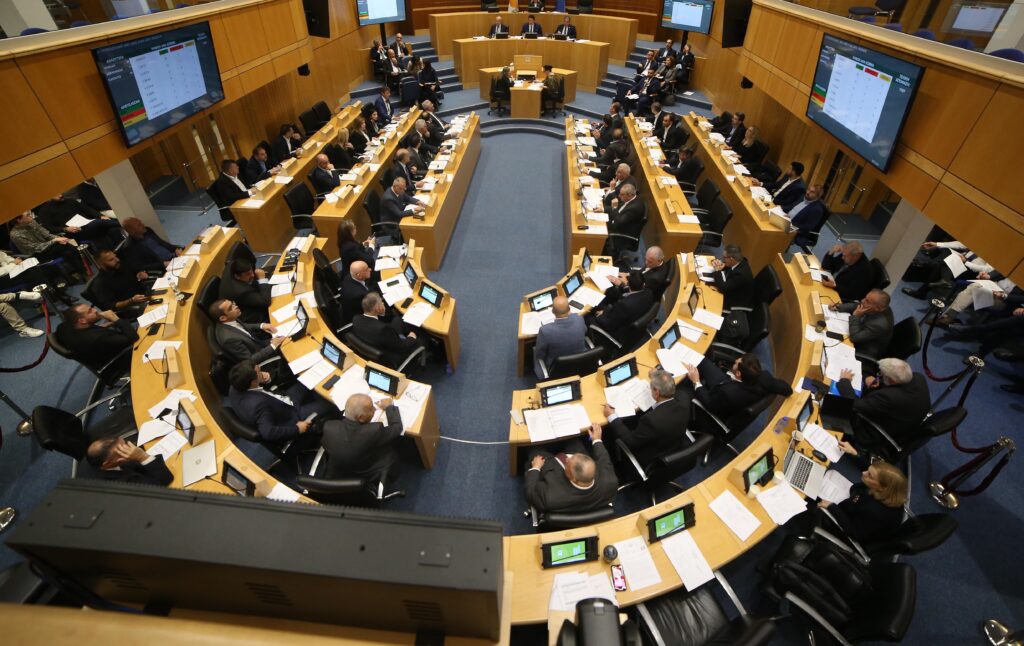Filenews 12 January 2025 - by Yiannos Katsouridis
For some years now, many political scientists have been arguing, and I think it is important to reiterate, that the global scene and the European political systems are in a constant state of fluidity, uncertainty, instability and transition, as a result of sometimes accumulated and sometimes rapidly evolving events and changes that have overturned all the certainties on which the political process was based. This state of affairs makes any prediction and assessment precarious.
The economic crisis of the past decade with its ongoing effects, demographic changes, increased refugee and migrant flows, the increasingly catalytic influence of social media and the transition to a multipolar global environment are some of the factors that change the political landscape and create the explosive context within which political systems and political actors are called upon to operate. At the same time, the increasing intensity of globalisation and technological progress (artificial intelligence) are adding to uncertainty and defensive responses, as societies are called upon to adapt to rapidly changing realities and environments.
In Cyprus, these global dynamics have common characteristics but also local expressions, with political and party institutions trying to adapt to the ever-evolving "new order". The following text examines briefly and not exhaustively some of the challenges of the new year for the Cypriot political and party system. Some are essentially new, but others are repetitive. The common denominator is that the political system in our country has not yet managed to find the answers to most of them. This text does not aim to answer the questions at this stage, but to pose them. In a later one, I will try to answer some of them to the best of my ability.
The Cyprus problem, an existential issue
I believe that the Cyprus problem deserves special mention as it continues to determine political and social developments, regardless of whether it has seemingly receded in the priority scale of citizens' assessments. The Cyprus problem is an issue of existential importance for Cyprus and affects almost every aspect of the Cypriot political and social formation and individual political behaviour. The ongoing Turkish occupation and the non-resolution of the problem create conditions of permanent instability on multiple levels, although in some cases this is not immediately visible.
The de facto division of the island affects not only domestic politics and social cohesion, but also Cyprus' position on the international stage. It affects the country's relations with individual countries and international organizations, strengthens dependencies on third powers and limits the country's strategic choices. The perpetuation of the issue acts as an obstacle to sustainable economic growth, as division restricts access to natural resources and creates uncertainty that deters investment. It creates inherent conditions of political instability and shakes trust in state structures and political actors because it is linked to interests on both sides: resolution in any way and form, on the one hand, or maintenance of the status quo on the other. Moreover, failure to solve the problem maintains a divisive framework that permeates every aspect of political life and makes finding the necessary consensus difficult. The failure to resolve potentially even increases the risk of military escalation in a flammable and ever-changing region. All the above make the solution of the Cyprus problem politically imperative. However, the lack of a coherent and consensual vision and narrative, beyond some usually general declarations and references, is a major contentious and dominant challenge for the year that begins once again.

Exogenous Challenges
The two ongoing wars – in Ukraine and the Middle East – and the new state of affairs in Syria, which I think many European leaders, publicists and analysts were naively quick to welcome as a positive development, albeit more cautiously this time, create the context of the current conjuncture in which multiform economic and geopolitical pressures are intertwined, bringing about significant challenges for Cyprus.
At the humanitarian level, our country's ability and capacity to receive and manage migration and refugee flows stands out, which may have decreased in recent months, but it is only a matter of time before they will resume. The existence of these flows and the way they are managed, add pressure to state resources and structures, affect the internal economic and social situation and, by extension, the political scene, since migration feeds with raw material the rise of the local far right, as in the whole of Europe.
War conflicts and instability in the Southeastern Mediterranean region, combined with the revisionism of regional actors such as Turkey, affect Cyprus' energy security, as energy resources tend to become a source of tensions between the parties involved. Open projects in this field are indicative of the complexity and risk of these issues. The developments in Syria add another piece to the puzzle of security issues concerning the relations of the new regime with Turkey, the possible delimitation of EEZs between them and the consequences of such an event in Cyprus. The differences that arise with Greece on the issue of the laying of the electricity cable also raise the issue of the relations between the two countries, which, no matter how fraternal, do not cease to be relations between two separate state entities with all that this implies.
Cyprus is also facing the consequences of the gradual but continuous transfer of powers and competences to the European institutions. The challenge lies in the balance between European integration and national sovereignty. Domestic political institutions, such as government, parliament and political parties, are institutions developed within the framework of the nation-state and experience so far shows that they have not managed to adapt to the new realities created by the process of European integration, thus tending to become superfluous or simply performative actors for decisions taken elsewhere. At the same time, Cyprus is called upon to actively participate in shaping European policy and to manage issues that intersect national interests with the EU integration process, such as the issue of veto rights, securing funds for infrastructure, etc. This, in turn, requires an integrated political presence in the European field and avoidance of unilateral approaches. limited only to the national problem. Something that we must admit is already changing for the more positive in recent years.
The biggest issue and dilemma, however, for Cyprus at this juncture concerns the choice of "camp" in the global competition of the "collective West" with the "collective East", to put it schematically. This tug-of-war puts pressure on all states, let alone the smaller ones, to choose sides. Cyprus, as a member of the EU and not only, has chosen the complete westernization of its foreign policy and is called upon to manage the contradictions arising from this choice and to balance relations with countries belonging to the "other" camp and some of which are decisive actors both on the global and regional scene with significant influences on the Cyprus problem.
The decoupling of politics from society

Endogenous challenges have their own specific, Cypriot characteristics, in the way they are manifested, but they do not cease to be manifestations of the corresponding challenges and problems faced by all political systems in Europe, North America and many other regions of the planet.
At the political level, the dominant challenge it poses and the context in which almost everything else manifests itself is the disconnection of politics from society. Citizens feel cut off from the political process, political parties and political institutions, as contemporary politics does not seem to reflect the experiences and needs of ordinary people. The sense of lack of political representation and the belief that politicians and parties act far more for selfish interests than the common good reinforce alienation. An image is emerging of osmosis between political and economic elites creating an impenetrable cartel. The basically rhetorical polarization among political actors, which in most cases does not reflect substantial differences in political positions, the focus on communication games and the lack of strategic thinking intensify citizens' mistrust.
The incidents of collusion and corruption exacerbate the problem of credibility of political institutions and actors and underline the need for political transparency and accountability, two important issues of our time. To tackle this crisis of confidence, new approaches are needed to reconnect citizens with political life. A proposal that is easy to formulate, but difficult to implement.
Responsiveness and problems

The second major challenge is related to the responsiveness of the political system to the needs and problems of citizens. Perhaps in its most important form, the issue of responsiveness is linked to the perception that the political system has not managed to effectively protect citizens from phenomena such as the unaccountability of banks and other economic operators, high prices, the increase in the cost of living, the reduction of citizens' real purchasing power. This image reinforces the perception that the political system cannot (or does not want) to adequately (or unwilling to) protect the economic interests of ordinary citizens. This debate calls for a profound reform of the way the banking sector operates and the conduct of economic policy in general, despite the suffocating constraints imposed by the EU framework. Economic indicators must be aligned with the real and essential needs of households and people, and public resources must be directed to the sectors that suffer and against the dogmas of the dominant neoliberal economic vision of surpluses and austerity.
Directly linked to the status of responsiveness is the inability of the state and parties to deal with the immediate problems of everyday life, such as health care and social benefits, state bureaucracy, distortions of the state apparatus, traffic, excessive expenses in major development projects, etc. This inaction not only reduces the efficiency of the services provided, it also erodes social cohesion and solidarity, prolongs frustration, fosters apathy and paves the way for more authoritarian political choices. On a third level, responsiveness is linked to the functioning of the political and party system itself with the many pathologies that accompany it. Citizens have often sent messages through elections and otherwise, which seem to be viewed by the political system with apathy and paternalism.
Inability to produce policy

The third major challenge is linked to the inability of political parties to produce policy, that is, to function, as Gramsci said, as "collective intellectuals". Parties are locked into producing image and communication instead of politics. While the transition of many policy areas to the European level leaves limited scope for the production of national policies, party apparatuses, which are often characterised by a lack of strategic thinking and insufficient staffing, also bear an important responsibility.
In order for the Cypriot political system to regain the trust of citizens, it is necessary to develop new strategies to address those mentioned above and many others that due to space were impossible to mention, with particular emphasis on policies that ensure social justice and prosperity. At the same time, the ability to reach an understanding at least a minimum level of consensus is required in order to produce a narrative that can give direction to the country and society.
*Associate Professor of Comparative Politics at the University of Nicosia
